Our first medium roaster influence single origin - this one is firmly with Espresso, Moka pot and Immersion brews in mind. This naturally processed Yellow Catuaí from Antonio Gonzales & Edy Aracely Samayoa’s Finca La Nueva Montaña has all the perfect characteristics we look for in a more developed roast profile.
Brew Guide:
Best Brewed with: Espresso, Moka Pot, Immersion
Espresso: 18g in, 38-40g out, 28-32s
Filter: 65-70g/L, Coarser grind, 88-92c water, low agitation.
We’re tasting: Sweet notes of milk chocolate, sticky cherry jam, butter biscuit, with a toasted hazelnut finish. Spiced fruitcake aromatics lift everything to the next level
In milk: Rocky Road in smaller (Flat white) style ratios, closer to Cherry pie in a Latte
Traceability:
Country of Origin: |
Guatemala |
Region: |
Fraijanes, El Palmar |
Farm: |
La Nueva Montaña |
Variety: |
Yellow Catuaí |
Elevation: |
Grown at 1550 -1800 MASL, Processed/Dried at 1200 MASL |
Process: |
Natural: Selective picking ripe cherries - Overnight in-sack fermentation. Cherries submerged in clean water in the morning to remove floaters & debris. Dried on raised beds over 20 days with frequent turning. |
Import Partner: |
Primavera |
The Story
Our final Guatemalan release for this season was fortuitous - we knew around this time in our roadmap we wanted to test the waters with a more developed single origin, and when we tried this coffee from Primavera’s offer, we knew it was the one.
Guatemala is a country that is especially affected by drought, influenced by climate change- so producers finding ways to lower water use yet still produce tasty lots (through natural processing, honeys or ecopulpers) is something we’re very keen on supporting. This profile - fruity, with flavours of process-led fermentation is a very recently prized thing. Going back 10 to 20 years and these flavours would have been heavily penalised by commercial buyers as defective, tasting of anything but “coffee”!
This lot from Antonio Gonzales & Edy Aracely Samayoa has been selected for Primavera’s “Arcoiris” range - which translates as “Rainbow” - coffees that show forward thinking, progressive and unique flavours - read on to understand why…
Antonio & Edy’s Finca La Nueva Montaña is a small 16 HA farm in Fraijanes, a coffee producing region directly to the south-east of Guatemala city. As the urban sprawl extends outwards and property prices increase, the area in Fraijanes devoted to coffee farming has shrunk, as it becomes less profitable than real estate development.
The climate is cool and moist, and the soil is well nourished thanks to the nearby Pacaya volcano. This permissive climate means that even though the Finca is relatively small, it is highly productive - with an average annual production of 230 bags of 69 kilograms each. The plots of land on the farm with coffee sit between 1550 - 1800 MASL, a good altitude for producing quality, something that is helped by the use of native shade trees.
This lot is a single variety selection of Yellow Catuaí - a dwarf cultivar first developed in Brazil in the 40s, crossing Mundo Novo x Caturra. It’s a cultivar known more for its high yields than its raw inherent cup quality - an association made mainly due to its prevalence in Brazilian low(er) altitude bulk lots. But growing at the altitudes on La Nueva Montaña means that there is a greater diurnal temperature swing, delaying cherry maturation and concentrating sugars and organic acids in the seeds, allowing the full genetic potential to shine through.
Antonio's coffees are processed with excellent attention to detail at his mill, which is at 1200 metres - a lower altitude than the farm tablons where the trees grow, which means stronger sun and warmer days that are perfect for drying naturals.
Producing naturals and honeys as low-water techniques are a key part of Antonio & Edy’s production - both for the low environmental impact, as well as the larger premiums they are able to gain for the finished lots. These quality premiums are able to directly translate to higher wages for the farm workers and a measurably better income for Antonio & Edy - crucial in a time where it may be more profitable to sell land in Fraijanes for development.
The coffee is selectively picked, with the fresh cherries stored in clean sealed plastic bags. Ripe cherries already have a native microflora on their surface, and the fruit flesh is rich in sugars. This means from the moment the fruit is picked, fermentation begins - and when in a sealed container like a sack, the concentration of sugar and heat supercharges the start - unmanaged, those microbes could easily get out of hand. This can produce very intense, fruity cups - but it can also produce an unpleasant vingary, acetic acidity or worse. Keeping control of the process and pushing fruit notes, without ferment defect, and within the boundaries of farm logistics is the sign of excellent farm management.
To maintain control during the day’s picking, the filled sacks are kept in the shade to maintain a cooler internal temperature. At the end of the day the cherries are moved to the mill, for overnight storage.
Processing begins early morning - first the sacks are emptied into a soaking tank filled with fresh water. This removes dust & debris, and lower-density/underipe cherries float to the surface where they can be skimmed off to improve the overall quality of the lot.
The cool water homogenises the temperature of the cherries and also serves to reduce the microbial count after the in-sack fermentation.
The floated and rinsed cherries are laid on raised beds for drying - a process which takes about 20 days in the temperatures found in the mill. Frequent turning is the key to consistent drying without mould or over-fermentation - typically the cherries at La Nueva Montaña will be turned 4 times a day.
As you might imagine, 20 days on the beds and frequent turning implies a significant extra logistical footprint when compared to the 4-5 days a traditional washed coffee might spend being dried on a patio in Guatemala. However, this slow drying really helps to produce an even and stable result, and the cup quality produced commands a good premium, one we’re happy to pay.

![[08] Guatemala - Antonio Gonzales [CROP 22/23 ARCHIVE]](http://scenery.coffee/cdn/shop/articles/antonio_gonzales_shopify.png?v=1714047264&width=1100)
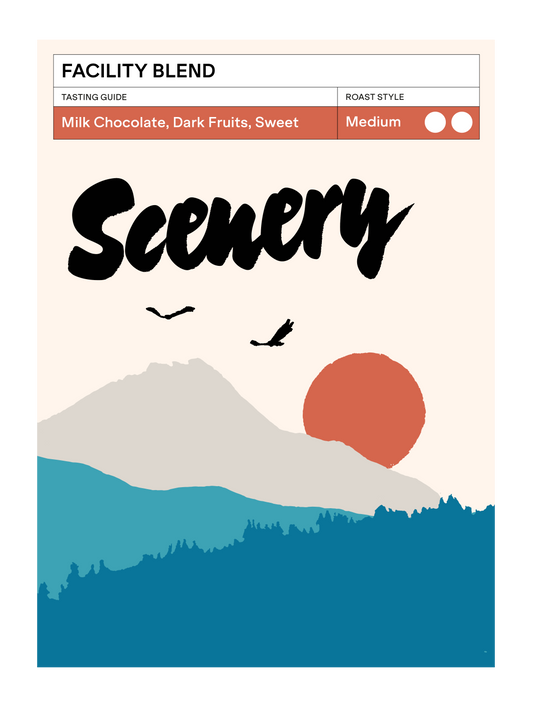


![Colombia - El Jaragual Espresso [25/26]](http://scenery.coffee/cdn/shop/files/colombia_el_jaragual_espresso_2526_shopify_02e82472-3443-4e5f-8e61-54b14caec36f.png?v=1756457993&width=533)
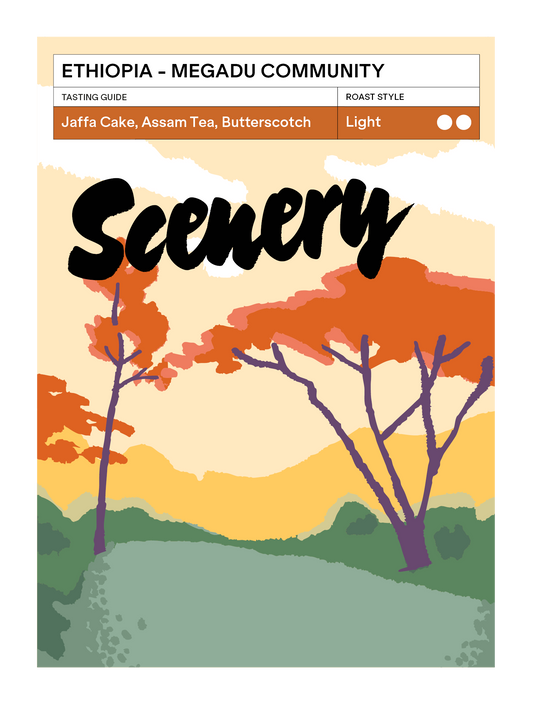
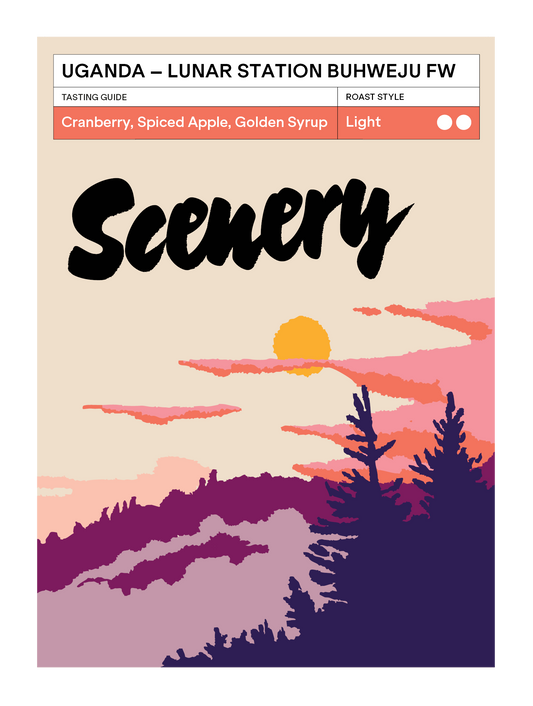
![Colombia - El Jaragual Rosado [25/26]](http://scenery.coffee/cdn/shop/files/el_jaragual_rosado_2526.png?v=1757075842&width=533)

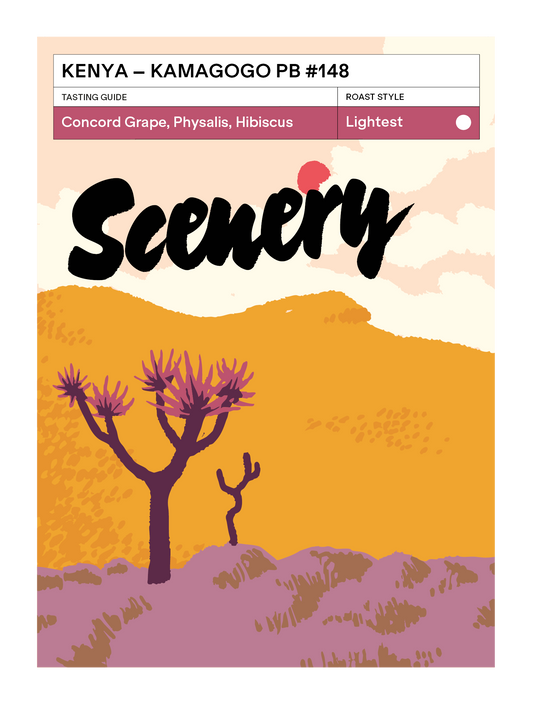
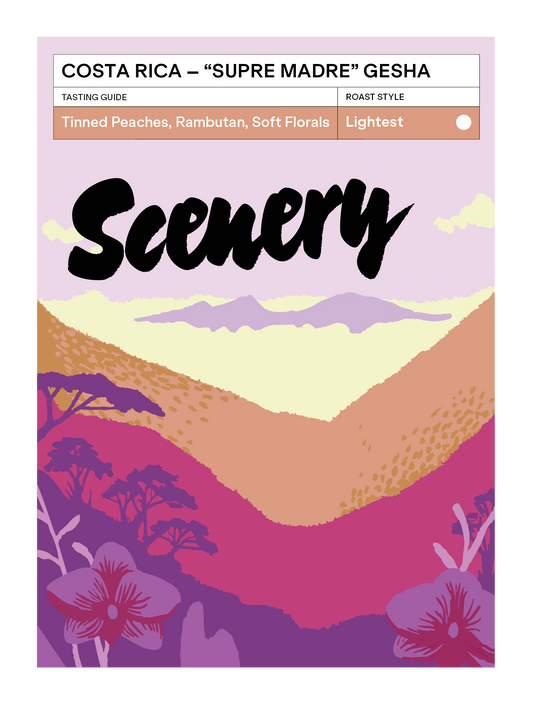
![Ethiopia - Bekele Belacho [24/25]](http://scenery.coffee/cdn/shop/files/ethiopia_bekele_belacho_2425_shopify.png?v=1756459151&width=533)
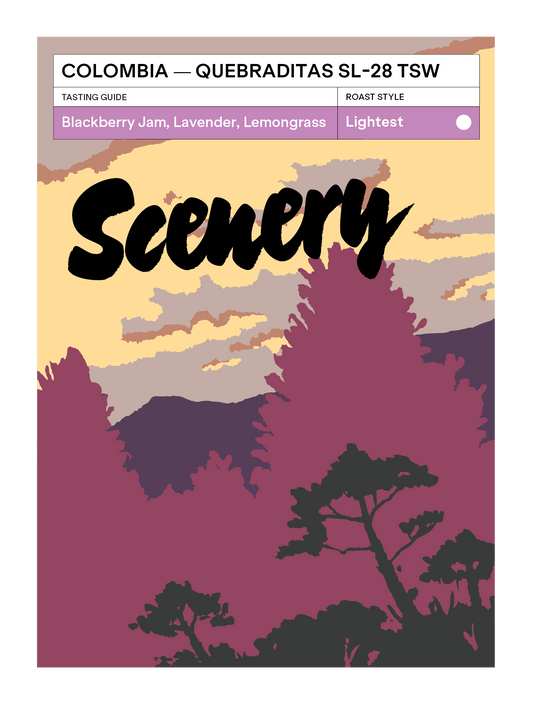
![Colombia - El Jaragual Caturra [25/26]](http://scenery.coffee/cdn/shop/files/colombia_el_jaragual_caturra_2526_shopify_fd4d2b46-1691-48f4-80e5-9a947ec22713.png?v=1756458088&width=533)

![Guatemala - Familia Primavera [24/25]](http://scenery.coffee/cdn/shop/files/guatemala_familia_primavera_2425_shopify_0daed525-97b3-4e51-af76-ea3775a71574.png?v=1756459482&width=533)
